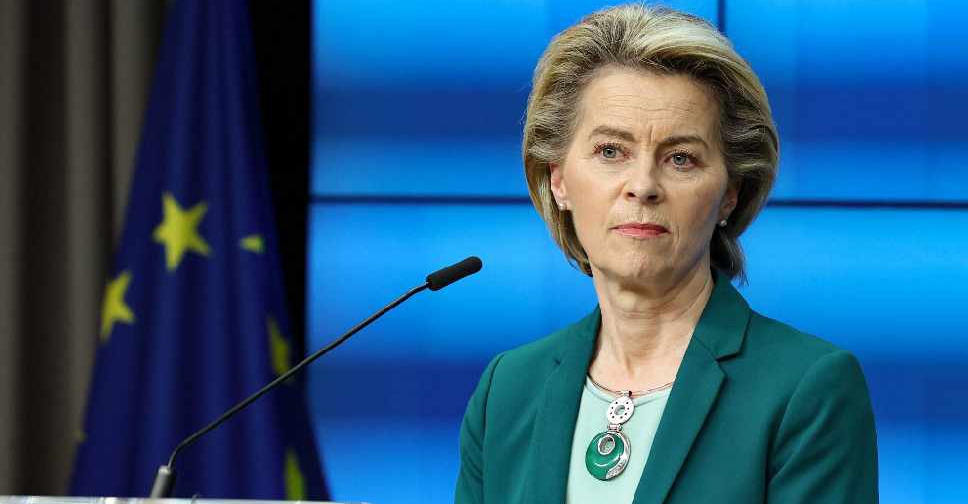
EU leaders have voiced frustration over a massive shortfall in contracted deliveries of AstraZeneca COVID-19 vaccines, as a third wave of infections surged across Europe.
With inoculation programmes running far behind those of Britain and the United States, the bloc's executive warned that vaccine exports by the British-Swedish company would be blocked until it delivers the shots it promised to the EU.
"We have to and want to explain to our European citizens that they get their fair share," European Commission President Ursula von der Leyen told a news conference after a video-conference summit of the European Union's leaders.
"The company has to catch up, has to honour the contract it has with the European member states, before it can engage again in exporting vaccines," she said.
Of 300 million doses due to be delivered to EU countries by the end of June, Astrazeneca aims to deliver only 100 million.
That has contributed to a stuttering start to vaccination rollouts. As of March 23, Britain had administered nearly 46 shots for every 100 people, compared with under 14 per 100 in the 27-nation bloc it left last year, according to figures compiled by website Our World In Data.
This week, the European Commission unveiled plans to tighten oversight of vaccine exports. This would allow greater scope to block shipments to countries with higher inoculation rates.
The EU is divided over whether to take a tougher line on vaccine exports by companies that do not meet contractual commitments. French President Emmanuel Macron made it clear he was fully behind it.
"It's the end of naivety," he told a news conference after the summit. "I support the fact that we must block all exports for as long as some drug companies don't respect their commitments with Europeans."

 UK inquiry finds 'chilling' cover-up of infected blood scandal
UK inquiry finds 'chilling' cover-up of infected blood scandal
 Iranian President Raisi killed in helicopter accident, state media says
Iranian President Raisi killed in helicopter accident, state media says
 ICC prosecutor seeks arrest warrants for Israeli, Hamas leaders
ICC prosecutor seeks arrest warrants for Israeli, Hamas leaders
 Assange given permission to appeal against US extradition
Assange given permission to appeal against US extradition
 Israel intends to broaden Rafah sweep, Defence Minister tells US
Israel intends to broaden Rafah sweep, Defence Minister tells US




